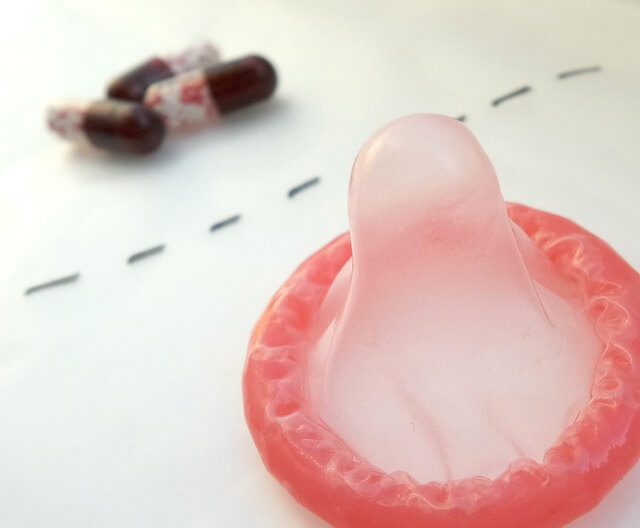So your sexual encounters have come to a quick halt way more often than you’d like, maybe you might feel a bit embarrassed and alone. And now you’re getting worried and wondering, “Is premature ejaculation common among men?” Well, don’t worry, because the answer is yes! It’s estimated that 1 in 3 men experience premature ejaculation at some point in their lives.
Before you start feeling like you’re alone in this, let me assure you that you’re not. This is something that a lot of guys go through, and it can be caused by a variety of factors. But don’t worry, we’re going to take a deep dive into what causes premature ejaculation and explore some of the ways you can help manage it.
In this article, we will explain how common it is, why it happens, the different types of premature ejaculation (PE), what causes it, and what you can do to help it.
So, whether you’re someone who’s been dealing with this for a while or you’re just starting to notice it, we’ll be looking at all the details later in the article. So let’s get stuck in!
How common is premature ejaculation?
The precise prevalence of premature ejaculation is hard to determine because definitions and criteria for the disorder differ. However, estimates imply that PE affects 20-30% of men globally. According to some research, up to 40-50% of men will experience PE at some point in their life.
What are the symptoms of premature ejaculation?
There are no other real premature ejaculation symptoms other than the inability to delay ejaculation for more than a minute after penetration. However other symptoms may include anxiety or embarrassment related to sexual performance, and difficulty maintaining an erection.
It is important to note that the definition and diagnosis of PE can vary among healthcare providers and research studies, and it is important to consult with a healthcare professional for an accurate diagnosis and treatment options
Different types of premature ejaculation
Premature ejaculation is categorized into two main categories based on the duration of the condition.
Lifelong premature ejaculation
Lifelong premature ejaculation (primary PE) is a type of PE that has persisted since a person’s first sexual experience and is unrelated to any underlying medical or psychological issues.
This type of PE is recognized by a continuous pattern of ejaculation that happens before or shortly after penetration and is uncontrollable by the individual. It is classified as a lifelong ailment because it has continued throughout the individual’s sexual history and is unrelated to any special incident or change in their health.
Primary PE can have a big impact on a person’s sexual and emotional health, as well as their relationships. It might cause anxiety and embarrassment about sexual performance, trouble maintaining an erection, and emotional and relationship problems.
Acquired premature ejaculation
Acquired premature ejaculation develops later in life, after multiple sexual encounters, and may go away later, unlike lifelong PE, which is present from the individual’s first sexual experience. It is caused by underlying medical or psychological disorders.
What causes premature ejaculation?
Premature ejaculation is a complex disorder with numerous biological and psychological causes. Understanding the fundamental causes of PE can help in its diagnosis and treatment.
Psychological factors
- Anxiety -General and performance anxiety can lead to premature ejaculation. Anxiety about sexual performance can generate muscle tension, which can lead to a man ejaculating quickly. Anxiety can also cause erectile dysfunction, which can aggravate PE. Furthermore, anxiousness might cause an individual to focus too much on the act of ejaculation rather than enjoying the sexual encounter, which can result in early ejaculation.
- Depression – As well as decreasing sexual desire, depression can also lead to premature ejaculation.
- Trauma – Trauma, such as sexual abuse or a distressing sexual experience, can result in premature ejaculation. Trauma can produce anxiety, depression, and other emotional disorders, which can hinder sexual function and contribute to PE.
- Relationship problems – Relationship issues, such as poor communication, a lack of trust, or unresolved disputes, can all lead to PE. When a person is under stress or pressure in their relationship, they are more prone to have PE. It is important to maintain a solid, trusting relationship with your sexual partner.
It is vital to recognize that psychological factors can interact and aggravate one another. For example, if a person is anxious about their sexual performance, it can lead to depression and relationship troubles, which can exacerbate PE. As a result, addressing psychological aspects in PE needs a comprehensive strategy that considers all of the factors that may be contributing to the situation. We will talk later about the best strategies to prevent premature ejaculation.
Diagnosis and Evaluation
So, if you think you’re having problems with premature ejaculation, you should know that there are options for getting help. When you see a healthcare expert, they will most likely perform a physical exam and inquire about your medical history.
They may also need a detailed breakdown of your symptoms, such as how long you’ve been experiencing PE and how frequently it occurs. They may also do a psychological examination to rule out any underlying mental causes of your PE.
Treating premature ejaculation
Ok, so you’ve been experiencing problems with premature ejaculation and you’ve gone to see a healthcare professional. They’ve given you a diagnosis and now it’s time to talk about treatment options.
Behavioral therapy
One way to treat premature ejaculation is through behavioral therapies. It is based on the theory that altering certain habits and thought processes can help to prolong ejaculation. Behavioral treatment procedures are frequently based on cognitive-behavioral principles. It can include techniques:
The squeeze technique
This technique involves squeezing the head of the penis right before you feel like you’re about to ejaculate, to help delay it. The technique is based on the idea that when the penis is squeezed, it can help to reduce the sensation of ejaculation and delay it. You can perform the squeeze method on your own or with a partner.
Sex therapist
Working with a sex therapist or other mental health professional is one option you could consider. They can help you in identifying and coping with the emotional and psychological aspects of PE, as well as teach you behavioral skills to help delay ejaculation.
Sex therapy can be done either alone or with a partner, results can take weeks or even months to see improvement.
Medications
Several medications are available to help with premature ejaculation. These medicines operate by either delaying ejaculation or decreasing penis sensitivity. The following are some of the most widely used drugs for PE:
Serotonin reuptake inhibitors (SSRI)
Selective serotonin reuptake inhibitors (SSRIs) work by raising serotonin levels in the brain, which can assist to delay ejaculation. Although they are primarily used to treat mental health problems like depression, some like Dapoxetine are specifically designed to help with premature ejaculation.
Topical creams
There are also topical creams that can be applied to the penis that contain lidocaine or prilocaine. These numbing creams help with PE by desensitizing the penis and delaying ejaculation.
Summary
So we’ve shown you premature ejaculation is common among men, and it’s nothing to worry about! It’s estimated that 1 in 3 men experience premature ejaculation at some point in their lives.
The causes of PE are complex and can be a combination of biological and psychological factors, such as anxiety, depression, trauma, and underlying medical conditions. It’s important to consult with a healthcare professional for an accurate diagnosis and to explore treatment options.
So, whether you’ve been struggling with PE for a while or it has just started to happen to you, it’s vital to know that you’re not alone and that there are various treatment options available. Please do not hesitate to contact a healthcare expert for more information and guidance.












